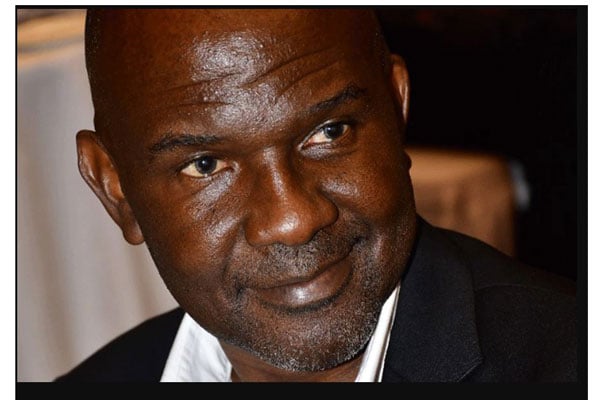Prime
Gay bill aside; bleeding issues behind Uganda’s economy

Mr Nicholas Sengoba
What you need to know:
- Sadly the government is acting like we are living in normal times. The expenditure in non-productive activities is increasing.
This year will be harder than last year. On the other hand, it will be easier than next year.” Those are the famous words from the 1967 new year’s message, of Albania’s former leader, Enver Halil Hoxha (14th October 1908 - 11th April 1985.) He led Albania with an iron hand for 41 years from 1944 to 1985 when he died aged 77.
Since 2023 when the 11th Parliament headed by Speaker Anita Annet Among passed the Anti Homosexuality Act, to the chagrin of most Western donors, Ugandans got another excuse as to why the economy is struggling.
Donors view it as a blatant abuse of human rights by the NRM government of President Yoweri Museveni; in power now for 38 years. As an act of retribution, donors levied sanctions for the passing of the law They include cutting aid and restricting market access.
In particular, Uganda was shut out of the US market through the African Growth Opportunity Act (Agoa) that allowed certain goods into the lucrative market, duty free.
By the end of 2021 Uganda exported about $5.1 million in this initiative. Before this we had the pretext of the war between Russia and Ukraine which pushed up food and fuel prices. Then of course the Covid-19 pandemic which effectively closed down the global economy for close to three years.
Last week when the Constitutional Court upheld the law, we were again warned to tighten our seatbelts for the long road.
Almost everywhere you look there are clear signs of economic distress. In many government offices the budgetary cuts mean that a lot of work has been put on hold.
In some of the local governments, payment for social services is behind schedule due to the cuts. The cleaners hired by KCCA have gone four months without pay. The roads in the city and most municipalities have fallen into disrepair.
In many schools the first term is about to end but most parents have not completed school fees. The newspapers are full of adverts regarding sale of the property of owners who have failed to service their loans with financial institutions. Many businesses are cutting back on costs and laying off labour even where it is in critical need.
As we write this, the traders downtown have closed shop. They are protesting against what they call high taxation and other issues that are allegedly suffocating their businesses, many of which have closed. You only need to go downtown and visit the arcades.
Yet the reality is that without donor funding Ugandans are the only viable fall back for revenue, so it can only get tougher.
The trouble is that despite the much-touted sustained economic growth rates variously put at about 4 percent for the last 20 or so years, the peace and stability in a liberalised environment, more foreign direct investment and of late the purported leap into lower middle-income status, prosperity is not a matter of course.
The major challenge is that right from 1986 there was a deliberate effort to artificially create a middle class that would help, among others, to perpetuate the NRM government in power. This class was chosen based on nepotism and patronage.
So, however, as the budget grows, money tends to circulate within a small circle instead of spreading to a wider society. That affects income distribution and effective demand in the entire economy.
Corruption became the major source of capital for this group that was lauded for taking public money and investing it at home to create employment and incomes.
Yes, they took the money but their ability to invest in activities that generate mass employment has been wanting as many of them resort to safer financial instruments like treasury bills and real estate.
A lot is also for ostentatious consumption. Those who have put their money in manufacturing and production go for end stage value addition which uses a lot of imported materials with minimal labour and capital.
So there is hardly any forward and backward linkages with the economy. Many Ugandans especially in the urban areas are unemployed, under employed or in some arrangement of disguised unemployment. They resort to crime, or luck to get by, living by the day working for street food (Rolex) to keep the skin together.
The new middle class has also not lost the appetite of taking from the public purse. Meaning that the economy does not get value for its money despite efforts of expenditure on public goods like roads and infrastructure.
Yet a lot of this money is borrowed and has to be paid back with interest which is a loss if it did not achieve what it was borrowed for. Conservative estimates put the loss to corruption to about Shs.1 trillion.
Uganda’s public debt currently stands at about Shs.88 Trillion. The country is expected to spend about Shs 24.9 Trillion servicing that debt. This is from a 2024/25 budget of about Shs.58.34. Trillion shillings with domestic arrears amounting to Shs. 2.7 trillion. Yet only Shs200 billion is set aside to pay part of the debt. This means that many unpaid suppliers to the government and those who deal with the government are going to go out of business or have their assets sold by financial institutions.
Secondly there was a deliberate effort to keep economic power in the hands of foreigners and not the natives for largely political reasons, like it happened in the colonial times. That is why there is a frenzy to attract foreign investors with all manner of freebies and tax holidays. The trouble is that most of them quickly repatriate their earnings safely away from Uganda.
So the average Ugandan lives on the edge and is one tragedy, away from economic ruin. An illness or unexpected development like abrupt unemployment like happened due to the Covid-19 layoffs are such issues.
Also this Ugandan is not a great economic player since he lives on a shoestring budget. Most of them consume goods and services on credit or at a bargain or abstain all together.
Such consumer behaviour can’t maintain many sectors of the economy. That is why the buildings the middle class put up for rent go empty for long periods and the second floors upwards of commercial buildings downtown have to be converted into cheap stores.
The importers of brand-new clothes, or shoes lose out on clients including the corporates who go for the cheaper second-hand cousins.
Sadly the government is acting like we are living in normal times. The expenditure in non-productive activities is increasing. The electoral commission has a budget item for prayers for peaceful elections.
The road ahead is going to be a long one even without the gay bill sanctions.
Twitter/X: @nsengoba



